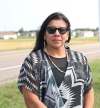No words to describe horrific discovery
Advertisement
Read this article for free:
or
Already have an account? Log in here »
To continue reading, please subscribe:
Monthly Digital Subscription
$0 for the first 4 weeks*
- Enjoy unlimited reading on winnipegfreepress.com
- Read the E-Edition, our digital replica newspaper
- Access News Break, our award-winning app
- Play interactive puzzles
*No charge for 4 weeks then price increases to the regular rate of $19.00 plus GST every four weeks. Offer available to new and qualified returning subscribers only. Cancel any time.
Monthly Digital Subscription
$4.75/week*
- Enjoy unlimited reading on winnipegfreepress.com
- Read the E-Edition, our digital replica newspaper
- Access News Break, our award-winning app
- Play interactive puzzles
*Billed as $19 plus GST every four weeks. Cancel any time.
To continue reading, please subscribe:
Add Free Press access to your Brandon Sun subscription for only an additional
$1 for the first 4 weeks*
*Your next subscription payment will increase by $1.00 and you will be charged $16.99 plus GST for four weeks. After four weeks, your payment will increase to $23.99 plus GST every four weeks.
Read unlimited articles for free today:
or
Already have an account? Log in here »
Hey there, time traveller!
This article was published 14/06/2021 (1639 days ago), so information in it may no longer be current.
I didn’t say much when it was announced late last month that the remains of 215 Indigenous children had been found buried at the site of the former Kamloops Indian Residential School.
I didn’t know what to say.
This is an act more horrific than I can fathom or put into words. People much smarter and more knowledgeable than me have spoken out in the media and on social media, writing articles about Canada’s tainted past. Leaders such as Murray Sinclair, the former senator and chairman of the Truth and Reconciliation Commission, addressed the world with empathy and poise, giving words to something unspeakable. He translated our sorrow and reminded us we must persevere on this journey to reconciliation.
In a Facebook video posted on June 1, Sinclair spoke about the survivors who shared their stories with the TRC. They gave horrendous accounts of abuse and neglect and the utter loneliness that shaped their experience. He explained about how the impact of being stolen from their families and communities and indoctrinated into a different culture against their will was a deliberate act by the Canadian government, and that one of the most common stories they heard was about children who died in residential schools.
It’s a lot to think about and to process. Like so many others, I am struggling with this discovery. It is heavy and all-encompassing. As an Indigenous woman who is a mother and the granddaughter of a residential school survivor, it hits me in a place I can’t explain. I am not surprised, and I will not be surprised when the next discovery is made, or the one after that, because the TRC’s research indicates at least 3,213 children were reported to have died. The actual number is suspected to be quite a bit larger but is unknown because of poor record-keeping, and because the Roman Catholic Church has refused to release records and documentation.
I’ve struggled to figure out how to approach this.
I’ve done the bare minimum to show my support. I’ve changed my Facebook profile picture to include an orange frame that states Every Child Matters and have donated money to the Indian Residential School Survivors Society. I’ve ordered books to read to my kids, and I’ve watched YouTube videos on how to talk to kids about the horrors of the residential school system. In the days after the announcement, my two older kids had discussions in their online classes about it. Afterwards, we talked about it and about our connection to this horrible Canadian legacy. I try to tell them as much as I can about Indigenous history, about our ancestors and our culture. But to be perfectly frank, I don’t know much about it — not in the way I should. That part of me was stolen from my Nana and from the generations after her. This is a ripple of the residential school system.
I am grateful for leaders such as Murray Sinclair, who speak up when words fail, and for the brave men and women who came forward to share their stories of trauma and survival in the name of truth and reconciliation.
The journey of truth and reconciliation is far from over.
A National Indian Residential School Crisis Line has been set up to provide support for former students. You can access emotional and crisis referral services by calling 1-866-925-4419.
shelley.cook@freepress.mb.ca
Twitter: @ShelleyACook

Our newsroom depends on a growing audience of readers to power our journalism. If you are not a paid reader, please consider becoming a subscriber.
Our newsroom depends on its audience of readers to power our journalism. Thank you for your support.
History
Updated on Monday, June 14, 2021 6:32 AM CDT: Adds byline






